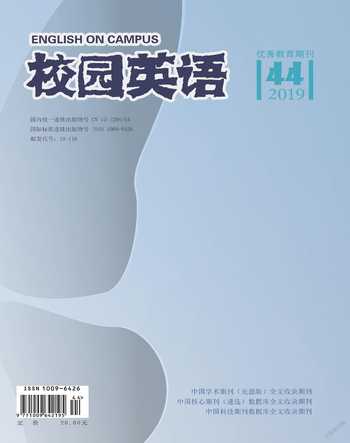Translator’s Subjectivity: A Perspective of Polysystem Theory
【Abstract】This thesis is an attempt to explore the translator’s subjectivity from the perspective of Polysystem Theory which stresses the poetics and ideology of the target culture, and provides the base upon which the new interdisciplinary translation studies can build.
【Key words】 translator’s subjectivity; Polysystem Theory
【作者簡介】韋茁,上海應用技術大學外語學院.
For a long time, translation theories had been perceived as secondary to comparative linguistics, whereby translation had been approached mainly in terms of the comparison between language structures in an ontological way. But when translation researchers came to realize that such a prescriptive and linguistic approach was inadequate to explain a human activity as complex as translation, they set to examine translation in a broader cultural and social context. Besides, many interdisciplinary scholars, with their insightful perspective , also began to challenge the dominant translation theories by approaching translation in a multi-dimensional and interdisciplinary way. All these gave momentum to the “cultural turn” in translation studies.
Translation was not viewed as a social activity and the translator’s subjectivity was neglected until the late 1970s, with the rise of the Polysystem School and the Manipulation School, the mid 1980s, with the rise of Skopos theory, and the late 1980s and early 1990s, with the rise of Deconstruction Theory and Hermeneutic Theory. A review of translation discussions and theories in this phase reveals how the translator and his/her subjectivity became visible with the boom of a host of schools of translation theories.
The first group of scholars to begin to put translation studies into the larger historical and social framework, namely the system of systems, have been identified as polysystem theory, among whose representatives are Itamar Even- Zohar and Gideon Toury. One of their main assumptions was, and remains today, that translation is always controlled by target culture. Instead of putting forward a criterion for correct translation and methods to achieve it, they argue that the value systems, belief systems, literary and linguistic canons, social and moral norms, and political expediencies of the target culture shape translations in a powerful manner in addition to shaping the translator’s notion of equivalence in the process.
Even Zohar examines the relationship between the position of the translated literature within the literary polysystem and the strategies adopted by the translator. He argues that translators in a strong literary polysystem tend to apply the domesticating strategy , and thus produce translations characterized by superficial fluency, while in a weak culture, foreignizing strategy or resistant translation prevails(Zohar, 1978:193). In other words, the power relation of the source culture to the target culture may exert great influence on the translator’s choice of translation strategy as well as translation materials.
Toury’s translation theory has adopted focus on the social-literary norms that govern the target culture and directly influence the process of translation. His theory is characteristic of “1) the abandonment of one-to-one notions of correspondence as well as the possibility of literary/linguistic equivalence(unless by accident); 2)the involvement of literary tendencies within the target cultural system in the production of any translated text; 3) the destablization of the notion of a original message with a fixed identity; 4) the integration of both the original text and the translated text in the semiotic web of intersecting cultural systems(Genztler, 2004: 131)” . Toury’s theories exerted influence on the later translation studies, hypothesizing infidelity as inevitable part, or rather, a condition of the process of translation, since translators do not work in ideal and abstract situations but have their own literary and cultural interests and want their work to be accepted in the target culture. They therefore manipulate the source text to “inform as well as conform with the existing cultural constraints”(ibid:131).
The Polysystem Theory, stressing the poetics and ideology of the target culture, provided the base upon which the new interdisciplinary translation studies could build.
References:
[1]Andre Lefevere, 2004. Translation,/History/Culture-A Sourcebook. Shanghai: Shanghai Foreign Language Education Press.
[2]David Katan, 2004. Translating Cultures: An Introduction for Translators, Interpreters and Mediators. Shanghai: shanghai Foreign Language Education Press.

